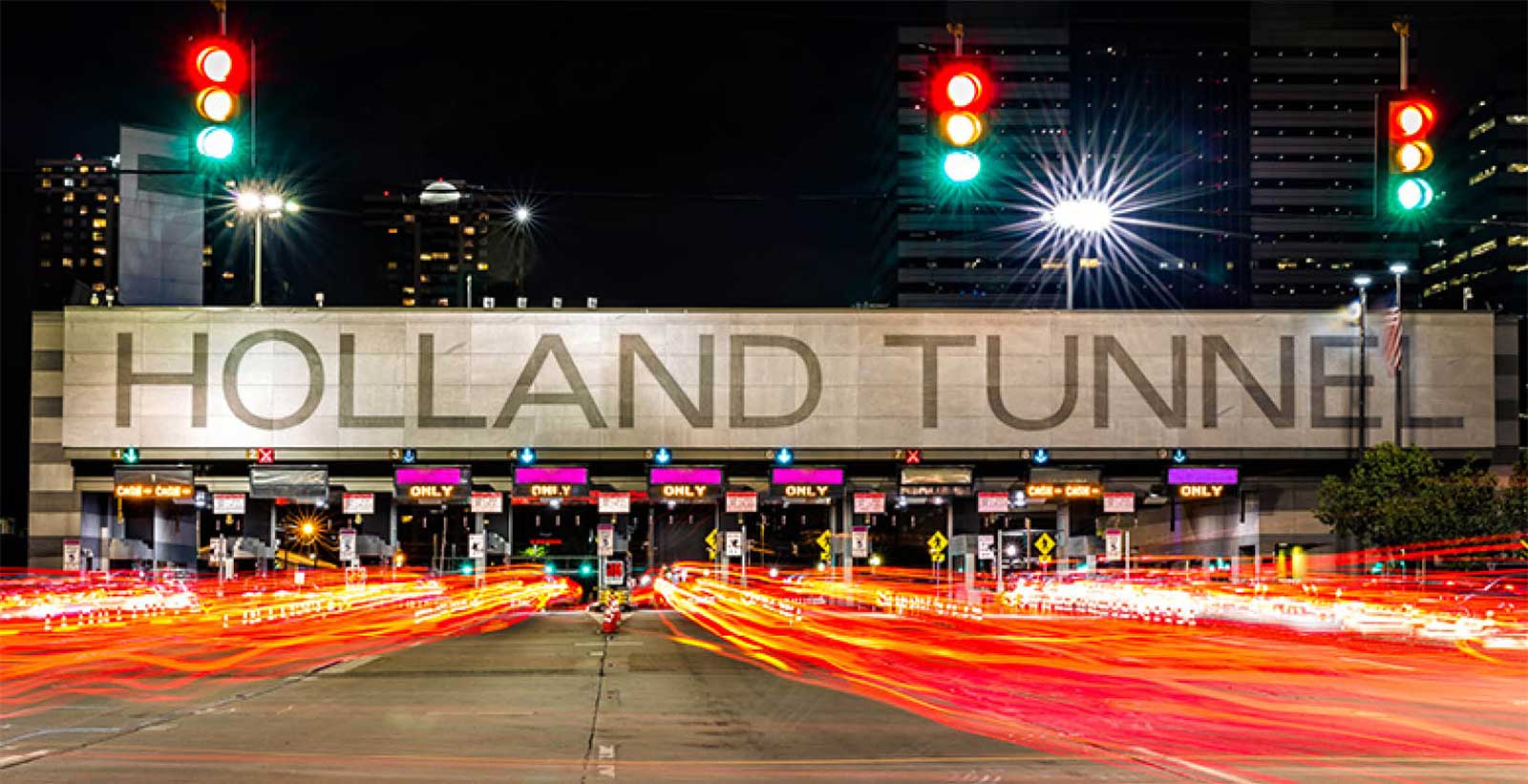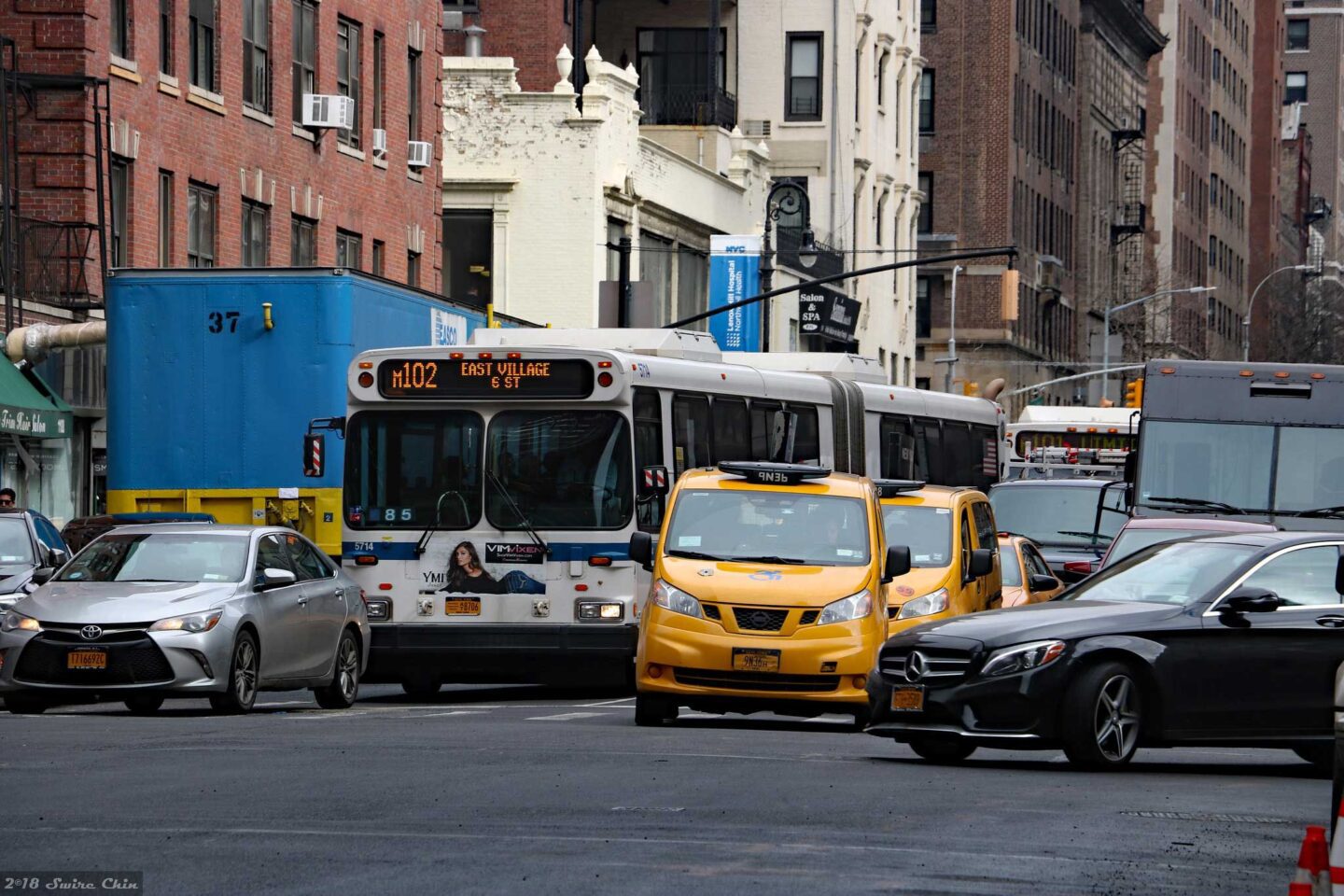
Residents throughout the New York metropolitan region can now formally weigh in on a plan that would charge new tolls to drivers passing through a large swath of Manhattan, as a pair of lawsuits stand in the way of the proposal’s implementation.
Last month, New York’s Metropolitan Transportation Authority (MTA) board voted 9-1 to preliminarily approve what is formally known as the Central Business District Tolling Program.
The proposal would impose a $15 congestion pricing fee for most vehicles entering Manhattan south of 60th Street between the hours of 5 a.m. to 9 p.m. on weekdays and between 9 a.m. to 9 p.m. on weekends.

Toll rates during off hours would run $3.50, while trucks would be charged anywhere from $24-$36 depending on the vehicle’s size. Motorcycles would be charged $7.50 under the proposal.
The MTA’s plan does include a few exemptions; vehicles that transport people with disabilities and ambulances don’t have to pay the toll. Garbage trucks, NYPD vehicles and fire trucks are also exempt, with taxis being subject to a $1.25 surcharge per ride.
People who live within the Manhattan toll zone and earn less than $60,000 a year would get a tax credit equivalent to the cost of the tolls they paid under the plan. Low-income drivers who earn less than $50,000 a year would be able to apply to pay half the price on the daytime toll, but only after the first 10 trips in a month.
The congestion pricing plan now enters a 60-day public comment period, which can be accessed through the MTA’s website here. The authority has also set up an email address at [email protected] that is accepting letters from the public on the plan.
The congestion pricing plan is forecast to raise $1 billion annually for the MTA capital budget to improve the city’s transit options, but the implementation is still very up in the air. Two separate lawsuits filed by New Jersey and Fort Lee are challenging the Federal Highway Administration’s June 2023 approval of an environmental assessment related to the project.
New Jersey’s lawsuit is seeking a more stringent Environmental Impact Statement, as the state believes the plan will have a negative impact on air quality around the George Washington Bridge. Lawyers from the Garden State have argued that drivers would use that crossing to avoid congestion pricing tolls that would go into effect at the Lincoln and Holland Tunnels.
Fore Lee’s separate legal filing is looking to create a mitigation fund to address the additional pollution the environmental analysis is forecasting from added bridge traffic. That lawsuit claims that while the MTA offered the Bronx $130 million to mitigate the effects of predicted air pollution increases, no such measures were offered to Bergen County.
All sides of the congestion pricing battle seem to agree that the lawsuits could derail the plan. Per NJ.com, top officials from New York’s Metropolitan Transportation Authority traveled to Newark as recently as last month to talk to New Jersey officials about a potential settlement.
However, no agreement was announced following the talks. New York is still looking to have the Garden State’s lawsuit’s thrown out, filing a brief on December 14 last year asking a federal court judge to dismiss the lawsuit while claiming that congestion pricing has “enormous environmental benefits for both New Jersey and the entire New York City metropolitan area.”
All of New Jersey’s elected officials have publicly opposed the congestion pricing plan and while New York Governor Kathy Hochal and New York City Mayor Eric Adams are supportive, some cracks have emerged on the Empire State side.
MTA board member David Mack, who represents Nassau County, was the lone vote against the congestion pricing plan, while Staten Island Borough President Vito Fossella has also spoken out against the proposal.
The MTA could potentially have a “final” vote on the plan sometime in the spring, depending on adjustments made to the plan and any settlement New York and New Jersey might agree to.